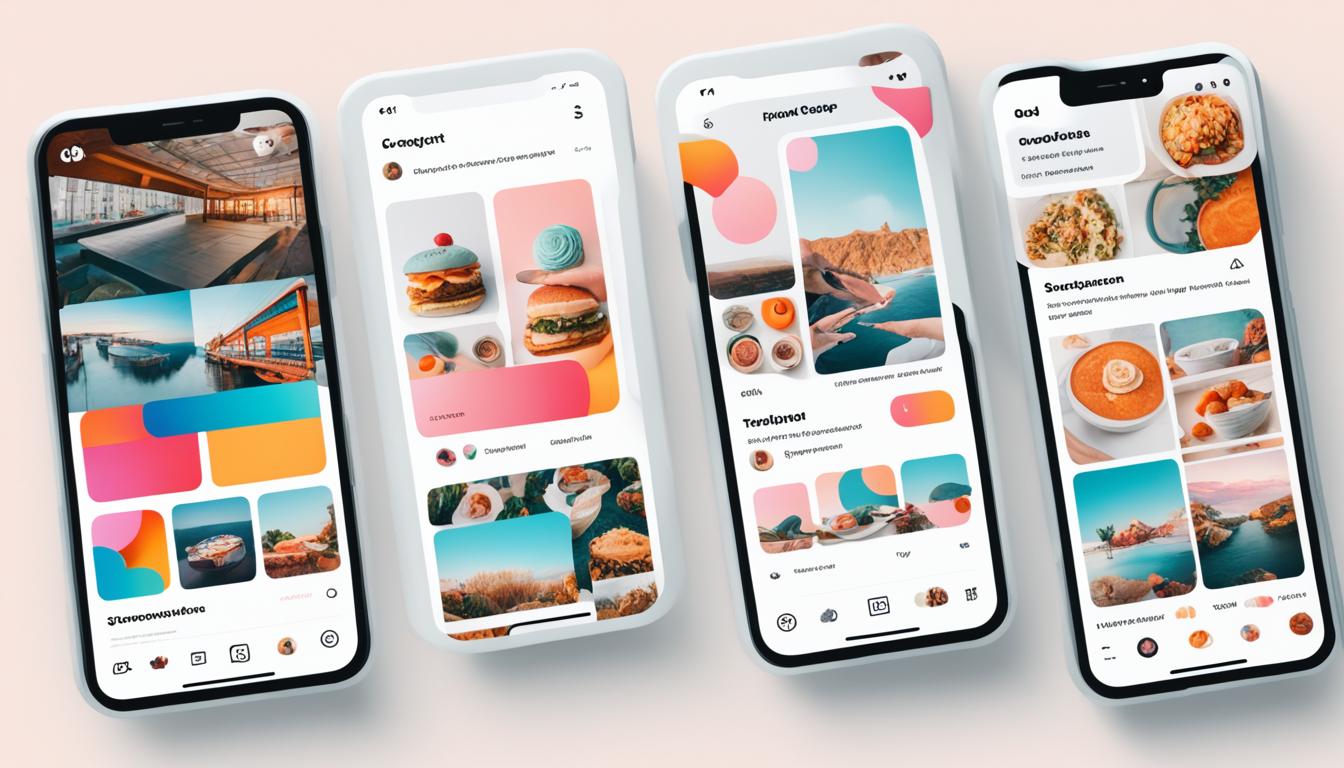User-Generated Content (UGC) Examples + How To Use It
Explore examples of User-Generated Content (UGC) and explain how businesses can effectively utilize it.
Did you know that 93% of customers look at reviews and recommendations from real people before buying something¹? This fact shows how powerful user-generated content (UGC) is today. Using this kind of content can change your social media marketing and make your brand more real.
UGC is not just a trend; it's a big deal for businesses wanting to connect with their audience better. From Instagram UGC to viral TikTok videos, there are many ways to use it. In fact, UGC posts get 28% more engagement than branded content on social media¹.
So, why is UGC so strong? It's all about trust. Almost all consumers trust advice from others, making UGC key for building trust and increasing the chance of a sale². Whether it's a great review, an unboxing video, or a photo with your product, UGC gives the realness that today's buyers want.
Key Takeaways
UGC is trusted more than brand-created content
Instagram UGC drives higher engagement rates
Customer-created content builds brand authenticity
UGC is cost-effective and influences purchasing decisions
Social media marketing benefits greatly from UGC
What is User-Generated Content?
User-generated content (UGC) is a key tool in marketing that changes how brands talk to their audience. It means any content made by customers, not the brand. This includes reviews, social media posts, photos, and videos that show off a company's products or services.
Definition and Types of UGC
UGC covers many kinds of content. Customer reviews, social media posts, and photos or videos of products are all examples. For example, GoPro's top three UGC videos on YouTube, made by customers, have over 400 million views³.
Importance of UGC in Modern Marketing
UGC is vital in today's marketing. People trust it a lot and it helps them decide what to buy. In fact, 86% of consumers trust a brand more when it uses UGC, compared to just 12% for influencer promotions³. This trust is key since only 32% of Americans trust traditional media a lot³.
UGC also changes how people act. A huge 79% say it greatly affects their buying choices, more than influencer content⁴. Brands like CeraVe have grown a lot, with a 128% increase in earned media value, thanks to UGC⁴.
UGC Impact - Percentage
Consumers trusting brands sharing UGC: 86%
UGC influence on purchasing decisions: 79%
Consumers finding UGC engaging in social feeds: 26%
UGC does more than just build trust. It's cheaper than paying influencers, which can cost a lot³. It also helps at every step of the buyer's journey, boosting sales and loyalty.
Benefits of User-Generated Content for Brands
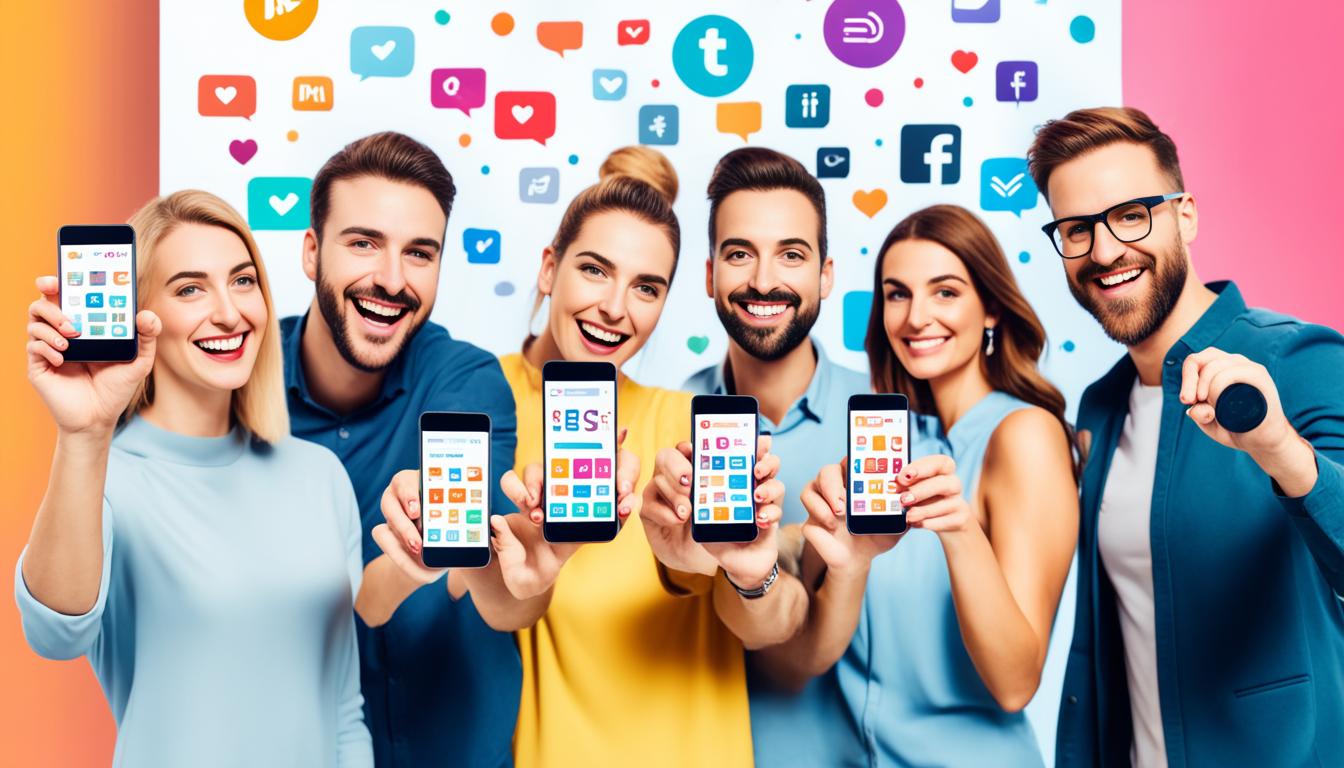
User-generated content (UGC) brings many benefits to brands. It helps make brands more real, saves money, and gets customers more involved.
Increased authenticity and trust
UGC shows real customer experiences, making brands seem more genuine. A huge 86% of millennials trust a brand more if they see real user content⁵. This trust leads to sales, as 60% of shoppers buy things based on what friends or family suggest⁶.
Cost-effective content creation
Brands can use a lot of free content from users. Instagram alone gets 80 million photos every day, and Facebook sees 30 billion posts a month⁷. This means brands get lots of new, different content without spending a lot of money.
Enhanced customer engagement
UGC makes brands talk to customers in a two-way conversation. It's really effective, with 84% of people saying it helps them decide what to buy⁵. Brands like Sugar Factory use UGC to get more attention and engage with their audience⁶.
UGC Benefit - Impact
Trust Building: 90% of customers check product reviews before buying⁷
Conversion Boost: 85% more effective than studio content⁵
Purchase Influence: 80% of consumers base decisions on UGC⁷
These numbers show how big an impact UGC has on brands. By using content made by users, brands can gain trust, save money, and connect better with their audience.
Instagram User Generated Content UGC
Instagram is a giant for social media UGC, offering brands a chance to connect with their audience. With 90% of users following at least one brand, it's a key spot for marketing on Instagram⁸. User-generated content can greatly increase engagement and trust in your brand⁹.
Brands like GoPro and Airbnb excel at using Instagram UGC. GoPro gets about 6000 videos shared daily, and Airbnb has 4.4 million followers on Instagram¹⁰. These figures show the wide reach and effect of user-generated content on this platform.
To make the most of Instagram UGC, try these tips:
Create brand-specific hashtags to increase awareness and track UGC
Run contests with influencers to get engaging content
Share positive customer reviews and testimonials
Use branded AR filters for a unique experience
92% of people trust recommendations from unknown individuals over branded ones¹⁰. This fact highlights UGC's strength in building trust and boosting sales. By using these strategies, you can boost your Instagram marketing and grow a strong community around your brand.
Always ask for permission and give credit to content creators when using UGC. This approach ensures legal safety and builds good will with your audience⁸⁹. By embracing Instagram UGC, you're not just marketing. You're building relationships and trust with your customers.
Successful UGC Campaigns: Case Studies
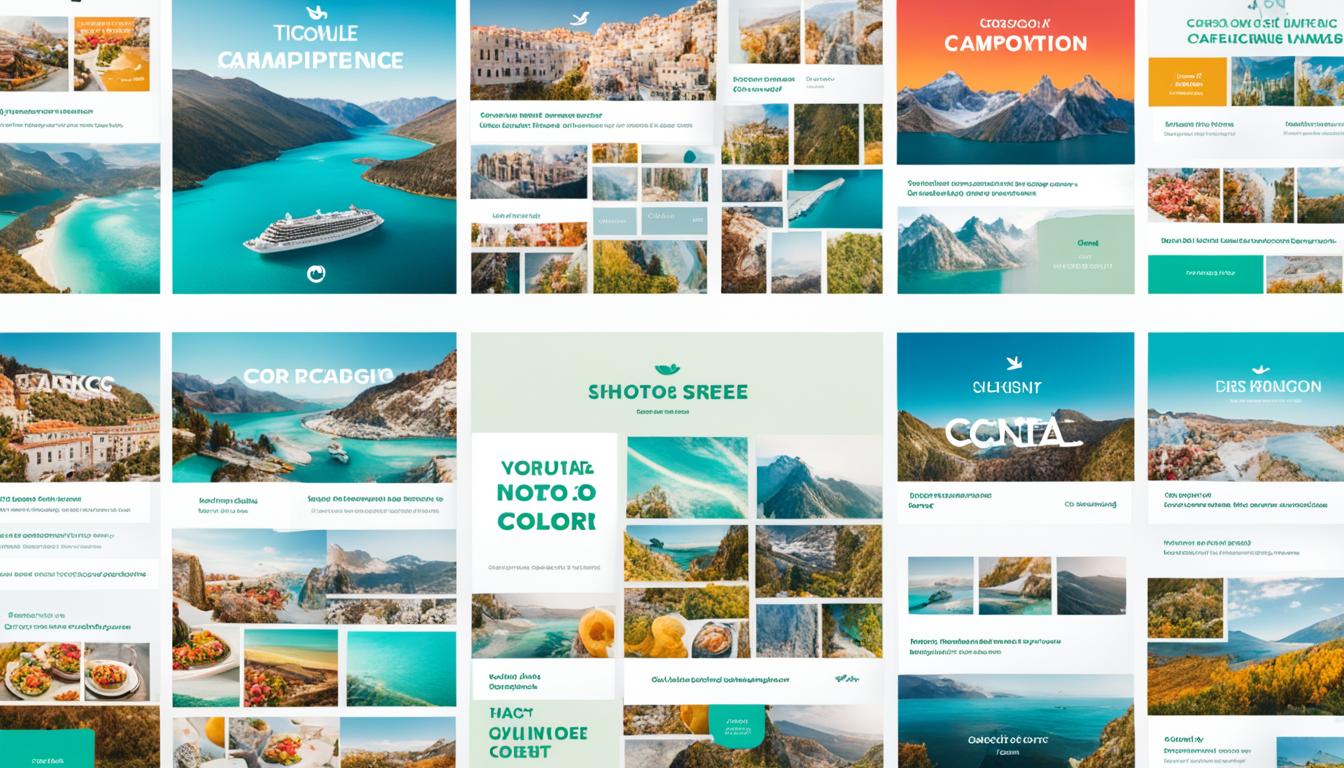
User-generated content (UGC) campaigns are key for brands to succeed. Let's look at some top UGC campaigns that rocked the marketing scene.
ASOS: #AsSeenOnMe
ASOS, an online fashion brand, started the #AsSeenOnMe campaign to show real people wearing their clothes. This move boosted engagement and loyalty. It worked so well that 69% of shoppers got inspired to buy something they saw online¹¹.
Coca-Cola: Share a Coke Campaign
The "Share a Coke" campaign by Coca-Cola is a hit. They put names on bottles to get people talking on social media with #ShareaCoke. It went global, reaching 80 countries, and got a lot of attention online¹². It made a personal connection with customers and raised brand awareness.
Apple: #ShotoniPhone
Apple's #ShotoniPhone campaign is a classic. It shows off the iPhone camera by sharing photos and videos from users. Over 49 million posts on Instagram prove its success¹³. It shows how UGC can highlight product features and build a community.
Campaign - Brand
#AsSeenOnMe: ASOS
Share a Coke: Coca-Cola
#ShotoniPhone: Apple
Key Metric Result
#AsSeenOnMe: Social Media Inspiration - 69% of shoppers inspired to purchase
Share a Coke: Global Reach - Spread to 80 countries
#ShotoniPhone: Instagram Posts - Over 49 million posts
These campaigns show how engaging customers in content creation works wonders. Brands that use UGC well see more engagement, trust, and sales. For example, 40% of shoppers are more likely to buy something from an ad with UGC¹¹. To see more about great UGC campaigns, check out these inspiring UGC examples.
How to Encourage User-Generated Content
Encouraging user-generated content (UGC) is key for brands wanting to increase engagement and authenticity. Instagram, with its expected 127.2 million monthly active users in the U.S. by 2023, is a top spot for promoting UGC¹⁴. Let's dive into effective ways to get your customers to create content.
Start by creating fun challenges or contests to get people creative. For instance, ELF Cosmetics' "Eyes. Lips. Face" TikTok campaign got a lot of buzz. Use branded hashtags like Urban Outfitters' #UOCommunity to help people find each other's content. Offer rewards or giveaways, like Fenty Beauty did with its perfume line, to encourage people to join in.
Ask for UGC directly in your app or website. Fitbit does this by hosting challenges in its app, encouraging users to set fitness goals and share their achievements¹⁵. This not only motivates your customers but also gives you great content for your brand.
Give clear guidelines so customers know what kind of content fits your brand. Remember, 92% of people trust UGC more than other ads, so using it well is key¹⁴.
UGC Strategy - Example
Challenges/Contests: ELF Cosmetics "Eyes. Lips. Face"
Branded Hashtags: #UOCommunity (Urban Outfitters)
In-App Challenges: Fitbit fitness goals
Incentives: Fenty Beauty giveaways
Benefit
Challenges/Contests: High engagement
Branded Hashtags: Increased discoverability
In-App Challenges: Customer motivation
Incentives: Boosted participation
By using these UGC strategies, you can build a community of customers who genuinely support your brand. Remember, 88% of people look for authenticity in brands, making UGC a powerful tool in your marketing¹⁶.
Leveraging UGC Across Different Platforms
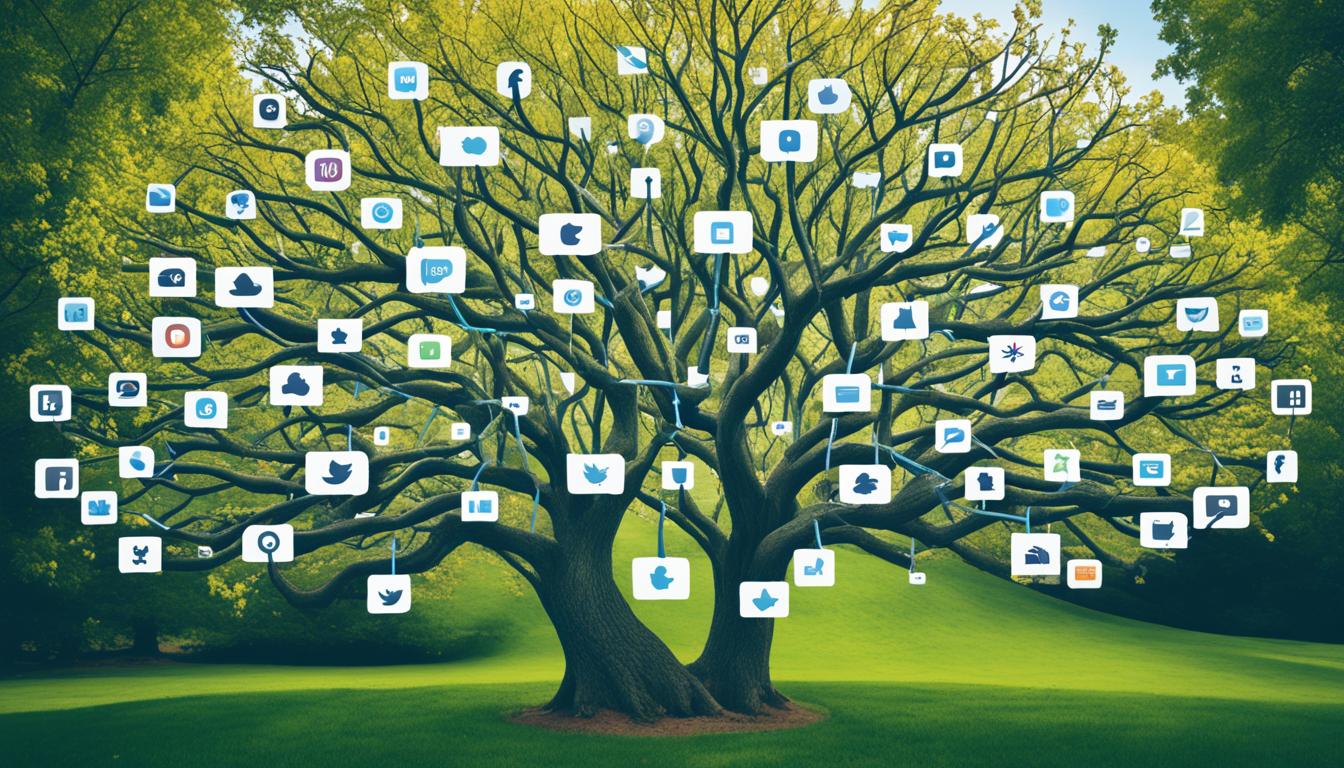
Using UGC on many channels is key to making a big impact. Over 86% of businesses use UGC, so it's important to use different platforms well17. Let's look at how to use UGC on various channels.
Social Media Strategies
Social media is perfect for UGC. Instagram gets 80 million photos every day, and Facebook sees 30 billion pieces of content monthly17. Here's how to use this to your advantage:
Create branded hashtags to get user content
Repost customer content and give credit
Run contests specific to each platform
Website Integration
Adding UGC to your website can really help increase sales. For example, VOX furniture saw a 18.76% increase in conversions by showing off UGC17. Here are some tips:
Add UGC galleries to product pages
Show customer reviews clearly
Put user testimonials on landing pages
Email Marketing Incorporation
Using UGC in emails can make people more engaged. Here are some ideas:
Put customer photos in product newsletters
Highlight user reviews in promotional emails
Share customer success stories in welcome emails
Remember, 79% of people say UGC affects their buying choices18. Using UGC on different platforms builds trust and drives sales. Platforms like Flowbox make it easy to use UGC well across all channels.
Platform - UGC Strategy - Benefits
Social Media: Hashtag campaigns, reposts - Increased engagement, brand awareness
Website: UGC galleries, reviews - Higher conversion rates, trust building
Email: Customer photos, testimonials - Improved click-through rates, personalization
Legal Considerations for Using UGC
Brands using user-generated content (UGC) face a complex legal world. It's key to get clear permission from creators to avoid copyright issues and follow the law20. This step helps protect your brand and builds trust with your audience.
There are legal problems when using customer content without the right steps. Copyright issues, privacy worries, and defamation can happen21. To avoid these, make sure to have clear rules for submitting and using UGC. Show these rules clearly to your users.
Being open about content rights is important. Talk clearly about how you'll use UGC in ads and follow FTC guidelines on sharing brand and creator relationships22. This keeps trust and prevents legal trouble.
Getting UGC permissions isn't just for social media. Make sure to include UGC rules in your privacy policies and look into licensing for wider use2120. Tools like Flowbox can help manage UGC rights and match them with creator permissions.
International brands need to know and follow the law in each country to avoid legal issues22. If unsure, talk to legal experts in intellectual property, advertising law, and privacy to handle UGC rights in your campaigns212022.
Measuring the Impact of UGC Campaigns
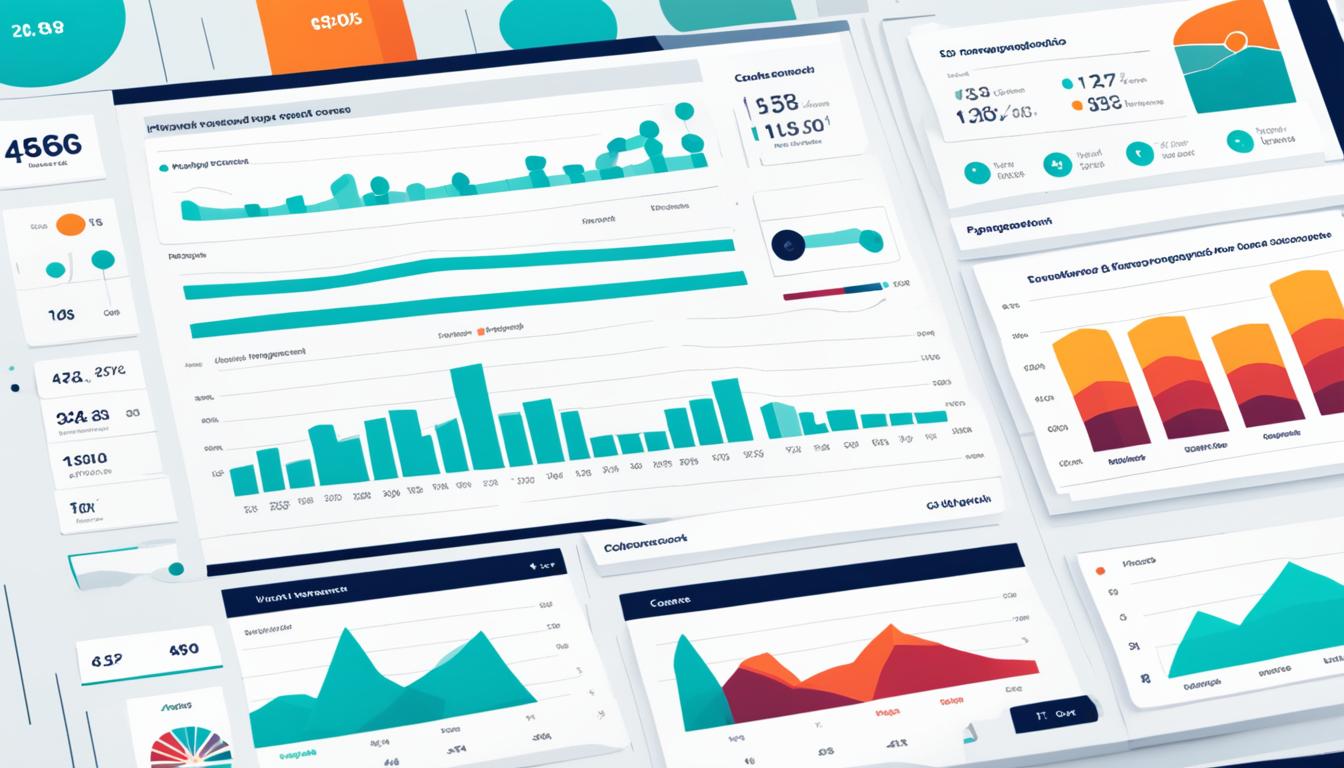
It's key to check how well your user-generated content (UGC) campaigns are doing. By looking at important UGC metrics, you can learn a lot about your campaign's success. This helps you make smart choices based on data.
Key Metrics to Track
To really see how successful your UGC is, keep an eye on these main metrics:
Reach and Impressions: See how many unique people saw your UGC and how often23.
Engagement: Watch for likes, comments, shares, and mentions to see how people interact23.
Click-through Rates (CTRs): Find out if your UGC gets people to click and take action23.
Conversion Rates: See what percentage of people do what you want them to after seeing your UGC23.
Remember, 92% of people like UGC more than regular ads because it feels real24. This makes these metrics even more important.
Analytics Tools for UGC
Use these powerful tools to keep an eye on and understand your UGC campaigns:
Tool - Key Features
Social Media Analytics Platforms: Comprehensive metrics tracking
Hashtag Tracking Tools: Monitor specific campaign hashtags
Google Analytics: Custom UTM parameters
Sentiment Analysis Tools: Evaluate brand perception
Best For
Social Media Analytics Platforms: Overall campaign performance
Hashtag Tracking Tools: Measuring reach and engagement
Google Analytics Custom: Tracking website traffic from UGC
Sentiment Analysis Tools: Understanding audience reactions
With these UGC analytics tools, you can tackle issues like tracking, privacy, and content variety25. Setting clear goals for your UGC campaigns makes it easier to see how well they work and get better results24.
UGC and SEO: Boosting Your Online Presence
User-generated content (UGC) is a powerful tool for enhancing your website's SEO performance. By incorporating UGC, you can significantly improve your organic search rankings and overall online visibility.
UGC SEO benefits are numerous. It increases user engagement, leading to longer time spent on pages with UGC elements. This improved engagement signals to search engines that your content is valuable and relevant26.
One of the key user content SEO advantages is the natural incorporation of long-tail keywords. These user-generated phrases expand your keyword coverage, helping you target a broader audience more effectively26.
Reviews play a crucial role in organic search improvement. They account for 16% of Local 3 Pack ranking factors on Google, making them essential for local SEO strategies27. Moreover, 92% of consumers trust recommendations from other people more than any other source, highlighting the credibility UGC brings to your brand27.
The impact of UGC on consumer behavior is significant. 83% of consumers trust UGC over traditional advertising, and 85% find visual UGC more influential than brand photos or videos28. This trust translates into tangible results, with 70% of consumers more likely to make a purchase based on social media referrals28.
UGC Type SEO Impact
Reviews 16% of Local 3: Pack ranking factors
Visual UGC: Improves engagement metrics
Social Media UGC: Increases social signals
Consumer Trust
Reviews: 92% trust recommendations
Visual UGC: 85% find it more influential
Social Media UGC: 70% more likely to purchase
By leveraging UGC, you're not just improving your SEO; you're building a community around your brand. This leads to repeat visits, increased loyalty, and natural backlinks - all factors that contribute to long-term SEO success26.
Integrating UGC with Influencer Marketing
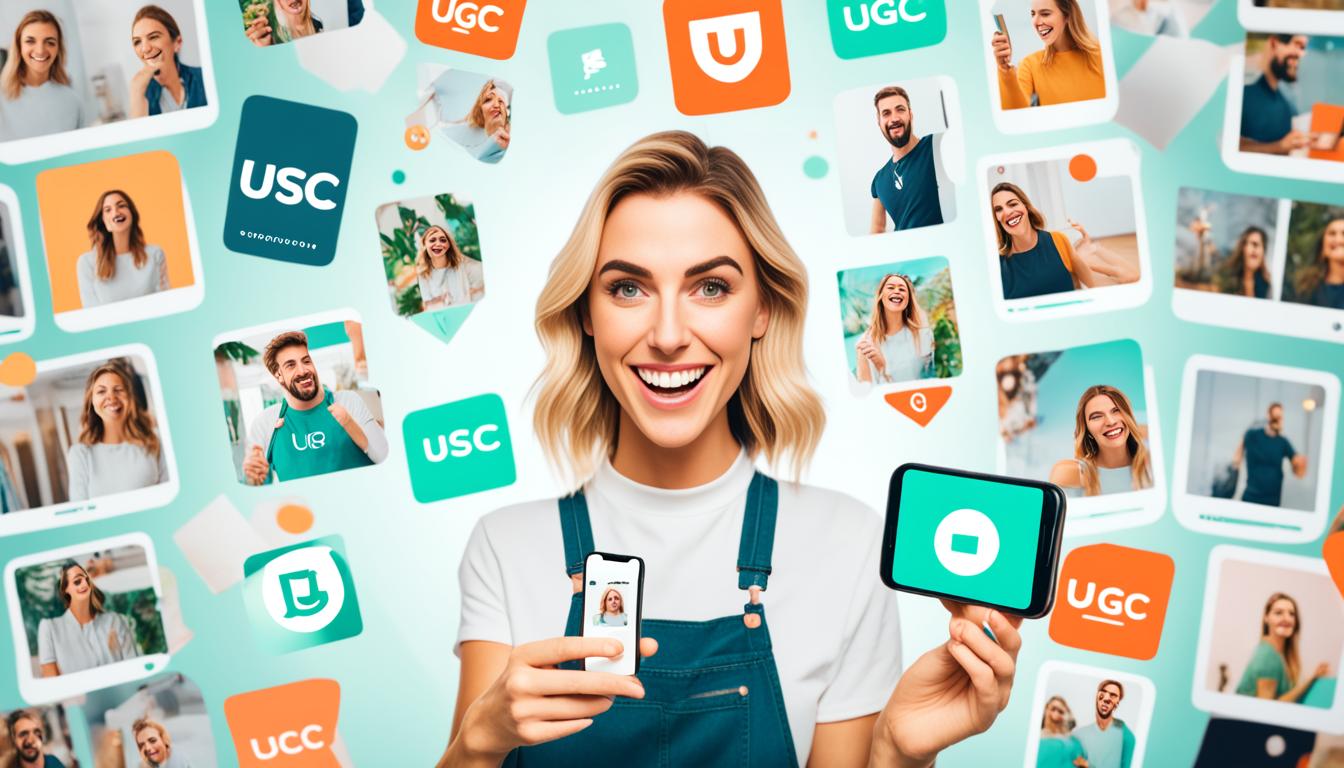
Using user-generated content (UGC) with influencer marketing is a strong strategy for brands. It combines the real feel of UGC creators with the wide reach of influencers. This mix boosts engagement and sales. Influencer UGC is changing the game in marketing today.
Content from micro-influencers often connects better with people because it's more relatable. Research shows UGC ads get more clicks and sales than regular ads. Adding UGC from influencers to ads leads to more engagement and wider reach29. This mix of influencers and UGC makes content feel real and trustworthy.
Influencer UGC has a big effect on how people act. 60% of consumers think UGC is the most real marketing content30. Also, 55% won't buy a product without seeing user content like reviews and photos31. These facts show why using UGC with influencer marketing is key.
Brands can use this powerful mix by:
Getting influencers to encourage their followers to create UGC
Using content made by influencers as high-quality UGC
Mixing sponsored content from influencers with real UGC for a true feel
Influencer marketing can be pricey, but UGC is often cheaper30. This makes UGC great for small brands or new ones, helping them promote without spending a lot31. By combining influencer UGC marketing, companies can connect better with customers, keep them loyal, and increase sales31.
"Influencer UGC marketing is not just a trend; it's a strategic approach that combines authenticity with reach, driving tangible business results."
Challenges of UGC and How to Overcome Them
User-generated content (UGC) is a big opportunity for brands, but it has its challenges. Let's look at these challenges and how to beat them.
Content Moderation
Keeping UGC quality high is a big challenge. Brands need strong content moderation to keep out bad or off-brand content. This takes time but is key to keeping your brand's good name. AI tools can make finding good UGC easier by scanning and suggesting content that fits your brand32.
Maintaining Brand Consistency
Keeping UGC consistent with your brand can be hard. To fix this, give clear guidelines and templates for making UGC. This lets users make content that fits your brand but still feels real. Remember, posts with UGC get way more engagement than those without32.
Platform - Best for
Instagram: Visual content
Facebook: Detailed posts
TikTok: Short videos
Twitter: Brief content
UGC Strategy
Instagram: Hashtag challenges
Facebook: Broad audience reach
TikTok: Viral potential
Twitter: Quick interactions
To get more people to join your UGC challenges, think about offering prizes, recognition, or discounts. Advertise your challenges on social media, through emails, with influencers, and with ads33.
When checking how well your UGC campaigns do, look at things like how many people took part, how engaged they were, the quality of the content, and how it affected sales. These numbers will help you make your strategy better and tackle future UGC challenges33.
"UGC challenges often include maintaining a constant flow of content, gaining user-generated content rights, ensuring quality and relevance of content, and utilizing AI and machine learning for improved UGC curation."
By facing these challenges and using smart strategies, you can use UGC to make your brand more real, increase engagement, and boost your marketing success.
Future Trends in User-Generated Content

The world of user-generated content is changing fast, with new trends setting the stage for the future. Brands are now adjusting their plans to make the most of these new chances.
Video content is a big deal in UGC now. Short videos on TikTok and Instagram Reels are getting more popular, giving brands new ways to connect with people. Live streaming is also on the rise, letting brands and consumers talk in real time34.
Artificial intelligence is changing how we make and pick UGC. AI tools help users create top-notch, personalized content. Brands use machine learning to find and show the best UGC34. This tech is making brands work differently with user content.
Augmented reality (AR) is opening up new ways for interactive UGC. Brands are using AR to make content creation better and give customers immersive product experiences. This is really taking off on platforms like Instagram and Snapchat, where AR filters and effects are getting better34.
Using UGC in e-commerce is becoming more common. User photos and videos are now a big part of what people look at before buying something. Brands are putting UGC right into the shopping process. This makes marketing and sales work together better, making customers happier35.
As UGC keeps evolving, brands need to stay quick and take on these new ideas to stay interesting to their audience.
Best Practices for Implementing UGC Strategies
When you want to make the most of User-Generated Content (UGC), think carefully. By using UGC best practices, you can tap into the power of real customer voices. This can help make your brand more visible.
Creating Clear Guidelines
First, set up clear UGC guidelines. These rules make sure the content fits your brand's image. Talk about what kind of content you want, how it should be made, and what themes to cover. Did you know, 85% of content creators are okay with brands using their work if they give credit36?
Curating and Featuring the Best Content
Choosing the best UGC is crucial. Pick content that speaks to your audience and helps meet your marketing goals. UGC photos are 5X more likely to get a reaction than professional shots, making them great for your brand37.
Use branded hashtags to collect and organize UGC
Engage with creators by commenting on and sharing their content
Showcase UGC across multiple platforms, including your website and social media
Offer incentives to encourage ongoing participation
Think about using UGC in emails to save on content costs and boost engagement. UGC can also make shopping more engaging by offering social proof. In fact, 70% of customers look at reviews before buying37.
UGC Strategy - Impact
Use real customer reviews: 87% of consumers find them influential36
Implement UGC in eCommerce: 15% average increase in conversions37
Feature UGC photos: 5X more likely to convert than professional content37
By sticking to these UGC guidelines and curating content well, you can build a strong UGC strategy. This approach will help increase engagement and make your brand more authentic.
Conclusion
User-generated content (UGC) has changed the game in marketing. It makes brands feel real and builds trust with customers38. This realness is powerful social proof that helps increase sales and loyalty3839.
UGC is key to a strong content strategy. It's an affordable way to make new, relevant content and connect with your audience3839. Brands like Starbucks, Airbnb, and Coca-Cola have seen big wins with their UGC, getting thousands of entries and millions of views40.
When making your UGC plan, think about building a community. Getting customers to share their stories boosts engagement and loyalty and helps you get noticed online39. Using UGC on different platforms and with other marketing efforts makes your brand strong and true. This approach connects with your audience and brings real results.
FAQ
What is user-generated content (UGC)?
User-generated content (UGC) is content made by customers for a brand, at no cost. It appears on social media or other platforms. This includes things like photos, videos, reviews, and posts from customers about the brand.
Why is UGC important in modern marketing?
UGC is key because most marketers believe customers trust content made by other customers more than what brands make. It adds realness, builds trust, and helps people decide to buy things. This affects 79% of buying choices.
What are the benefits of UGC for brands?
UGC helps brands look more real and trustworthy. It's also cheaper to make content this way. It gets customers more involved, builds trust, and makes people more likely to buy things. It also helps with brand awareness and loyalty.
How can brands leverage UGC on Instagram?
Brands can share customer photos, stories, and reels. They can start hashtag campaigns, run contests, and show off customer content on their pages. This gets more people involved, builds trust, and shows how products are used in real life.
What are some successful UGC campaign examples?
Great UGC campaigns include ASOS's #AsSeenOnMe, where they show off customer photos. Coca-Cola's Share a Coke campaign used personalized bottles. Apple's #ShotoniPhone campaign showed off photos and videos from users.
How can brands encourage UGC creation?
Brands can start trends, challenges, or contests. They can use branded hashtags and ask for UGC in apps or on their websites. Offering rewards or discounts can also encourage people to make more content.
How can brands integrate UGC across different platforms?
On social media, share customer content and use hashtags for UGC. Run campaigns made for each platform. On websites, add UGC galleries and customer reviews. In emails, include photos and stories from customers.
What legal considerations should brands keep in mind when using UGC?
Brands need to get permission from the people making content. They should have clear rules for submitting and using UGC. They must follow copyright laws and make it clear what content is sponsored. Using good moderation systems is also important.
How can brands measure the impact of UGC campaigns?
Look at how many people are engaging, how far the content reaches, how many people are buying, and what people are saying. Use tools like Sprout Social or Hootsuite Insights to track hashtags, how many people are taking part, and the quality of the content.
How can UGC improve SEO?
UGC can boost SEO by adding fresh, relevant content. It can make keywords more diverse and improve how engaging the content is. It can also help with local SEO and visibility in search results. Using schema markup for UGC can also help.
How can brands integrate UGC with influencer marketing?
Work with micro-influencers and UGC creators for real content. Encourage influencers to get their followers to make more UGC. Using content from influencers as UGC can also be high-quality.
What are some challenges of UGC and how can brands overcome them?
Challenges include keeping content quality up, making sure the brand message stays clear, and dealing with negative content. Brands can use strong moderation systems, give clear guidelines for making UGC, and handle negative content well and quickly.
What are some emerging trends in user-generated content?
Trends include more short videos, using AI for curation and analysis, AR experiences for interactive UGC, and more UGC in online shopping.
What are some best practices for implementing UGC strategies?
Make clear rules for UGC, have a plan for curating content, manage rights well, engage with creators, use UGC smartly in marketing, and check how well UGC is doing regularly.
Source Links
7 Benefits of User-Generated Content - What's In It for Your Brand? - Flaminjoy
13+ Ways to Boost Engagement With User-Generated Content on Instagram
20 Inspiring User-Generated Content Examples And Why They Work
13 Inspiring Instagram User-generated Content (UGC) Examples For Your Business
How to Curate and Share User-Generated Content on Social Media to Promote Your Brand
A Beginner’s Guide to User-Generated Content (Definition, Examples, and Tips)
Leveraging User Generated Content from social media on your online store
How to Create a User-Generated Content (UGC) Strategy with Examples
User Generated Content Permission, Rights, Laws & Legal Issues
User-Generated Content on Social Media: Avoiding Legal Issues - TermsFeed
Legal Considerations for Using User-Generated Content in Ads
Measuring The Impact Of Ugc Campaigns On Instagram - FasterCapital
How to integrate user-generated content into your SEO strategy
The Power of UGC for SEO: 5 Strategies to Boost Visibility and Engagement
Harnessing the Influencer User-Generated Content (UGC) Power for Ad Creatives
Influencer Marketing Vs. User-Generated Content (UGC) | Moburst
How Influencer UGC Marketing is the Next Big Thing | EvolveDash
The User-Generated Content Challenges Faced By Brands - Ampfluence | #1 Instagram Growth Service
Exploring the Top 5 Trends Shaping the Future of User-Generated Content (UGC) in 2024
Sai Rahul
Jul 30, 2024
Latest posts
Discover other pieces of writing in our blog



